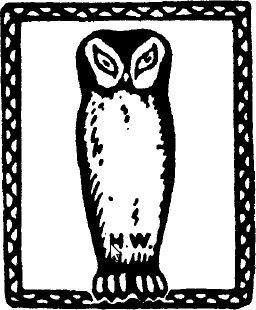A Solitary War (44 page)
Authors: Henry Williamson

Listening to Lord Haw-Haw had been one of the nightly
home-interests
or amusements of the majority of curious Englishmen during the winter of 1939 and the early spring of 1940. Teddy Pinnegar and he had often listened to it. And after the collapse of France, the tuning-in to Zeesen or Calais or Hilversum or Stuttgart or Bremen or Berlin became a regular evening event with many British people, because they were bewildered and
heavy-minded
, having been told in the courageous and rasping tones of Winston Churchill that the possibility of invasion was imminent.
If invasion came, it came; and most men, including himself, would do what they were told, each hoping he would not disgrace his country by being too afraid or downhearted: that was, as he saw it, the attitude of ordinary men in the village (who after the Rector’s sermon had decided not to resign from the Defence Volunteers). For himself, he considered that he might be
re-arrested
if the Church bells rang out to give warning that the dreaded parachutes were descending: but if not, he intended to put on his old tunic and steel-helmet of the last war, and with Winchester Repeater, ask to be allowed to help in the defence. If they shot him then and there, at least it would be quick. And he would be shot in his old uniform.
However, he had told Lucy, he expected to be re-arrested early and removed to a barb-wire cage somewhere, if invasion came.
Lying on the crest near his sheep, peacefully in the summer night, he thought with irony that, a few days before, newspapers had reported how the mother of an English boy, once belonging to Birkin’s party, now dissolved and made illegal, had been sentenced to a year’s imprisonment for passing to a neighbour over the
garden wall a piece of paper on which was written the
wave-length
of one of the stations from which the voice of Haw-Haw usually uttered its preliminary triple
Jairmany
calling!
The woman’s son, aged eighteen years, who wrote the figures on the piece of paper, had been sentenced at Leeds Assizes to five year’s penal servitude for ‘an act likely to help an enemy’.
How the piece of paper got into the hands of the authorities; at whose instigation the numbers were written on it; who had asked that they be written down on paper, to be passed over the garden wall, to be secured at once as evidence for a police prosecution—when the required information could have been spoken in the usual way without any trouble—were points not printed in the newspaper report.
Phillip was wearing his pair of corduroys bought some years before, and washed so many times that they were now white. They were useful at night in the village street, being visible to motorists. Now, as he lay on the grass under the dimming stars, he wondered if he were visible from the village, his legs making a white V sign. Would it be taken as a signal to the enemy, a request for more incendiary bombs to burn up more wasps’ nests? It was an idea daft enough to be taken seriously. If a learned judge could not perceive any parallel between advertising Haw-Haw in a small way over a suburban garden wall on a bit of paper passed by a poor little unsuspecting Yorkshire mother and son, and advertising Haw-Haw in a big way over the air of the British Broadcasting Corporation by way of a comedy song, how could any obfuscated village mentality he expected to discern the
difference
between his V sign on a local hill and Mr. Winston Churchill’s V sign on the newsreels of the entire country and Empire?
*
It was cold on the Hill, it was lonely. Soon a new day would dawn. He stood up. The morning star was rising in the east, to lead up the sun to shine upon the earth.
In the light of the sun was truth; the sun saw no shadows. In broad sunlight the morning star was dimmed, shorn of its beams; its radiance, beautiful and inspiring in the darkness, was lost.
The morning star was Lucifer, the light-bringer of mythology; Lucifer the fallen angel, Lucifer the prince of darkness.

Journalised:
Norfolk
—
Devon
1941
Novelised:
1949–1957
—
Devon
Recast:
Devon
—
London
1965
Henry Williamson (1895–1977) was a prolific writer best known for
Tarka the Otter
, which won the Hawthornden Prize in 1927. He wrote much of else of quality including
The Wet Flanders Plain, The Flax of Dream
tetralogy and the fifteen-volume
A Chronicle of Ancient Sunlight
, all of which are being reissued in Faber Finds.
His politics were unfortunate, naively and misguidedly right-wing. In truth, he was a Romantic. The critic George Painter famously said of him, ‘He stands at the end of the line of Blake, Shelley and Jefferies: he is last classic and the last romantic.’
This ebook edition first published in 2011
by Faber and Faber Ltd
Bloomsbury House
74–77 Great Russell Street
London WC1B 3DA
All rights reserved
© Henry Williamson, 1966
The right of Henry Williamson to be identified as author of this work has been asserted in accordance with Section 77 of the Copyright, Designs and Patents Act 1988
This ebook is copyright material and must not be copied, reproduced, transferred, distributed, leased, licensed or publicly performed or used in any way except as specifically permitted in writing by the publishers, as allowed under the terms and conditions under which it was purchased or as strictly permitted by applicable copyright law. Any unauthorised distribution or use of this text may be a direct infringement of the author’s and publisher’s rights, and those responsible may be liable in law accordingly
ISBN 978–0–571–27971–5